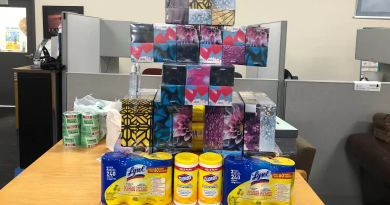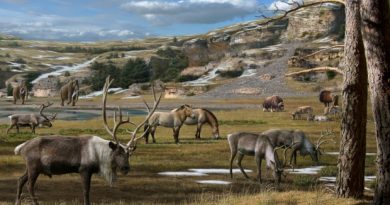Whitehorse to spend $300,000 on Robert Service Way landslide mitigation efforts

The City of Whitehorse has allocated $300,000 for responding to the landslide risk along Robert Service Way this year, with half the money going towards traffic-blocking gates.
The gates, set to be installed this spring, will be installed at the roundabout exit after Fourth Avenue and at another point before the road connects to the Alaska Highway — a stretch where the escarpment bordering the road has proven unstable in recent years.
The subject first came up at a city council meeting on Jan. 6, when city staff presented upcoming procurement projects expected to cost $100,000 or more. Councillor Dan Boyd brought the topic forward again at council’s Jan. 13 meeting.
City staff said the gates will be manually operated and similar to the ones along the South Klondike Highway south of Carcross, which can be lowered when there’s a high risk of landslide. That will save staff the need to move barricades onto the road, as has been done in previous years.
The remaining $150,000 will be spent on monitoring the escarpment during the spring melt and on other landslide mitigation efforts like lock-blocks.
We have set aside money on an annual basis to continue to respond [to the landslide risk] until such time as we’re able to undertake the repairs on Robert Service Way on the slope there, said Travis Whiting, the city’s acting director of infrastructure and operations, at the Jan. 13 meeting.
A major landslide off the escarpment in the spring of 2022 led to the city closing off Robert Service Way for eight weeks as crews assessed the stability of the area and cleaned up the debris. There have been landslides — albeit at a smaller scale — in the same area every year since. The risk is highest during the spring melt when increased groundwater flow threatens the stability of the clay, sand and other materials making up the slope.
Related stories from around the North:
Canada: Wildfire evacuations have unique impacts on Indigenous communities: study, CBC News
Norway: Rising nuclear activity in Arctic Europe prompts Norway to update disaster plans, The Independent Barents Observer
Russia: Forest fires are raging across the Barents region, The Independent Barents Observer
United States: Trump Administration approves funds for Alaska earthquake recovery, Alaska Public Media



